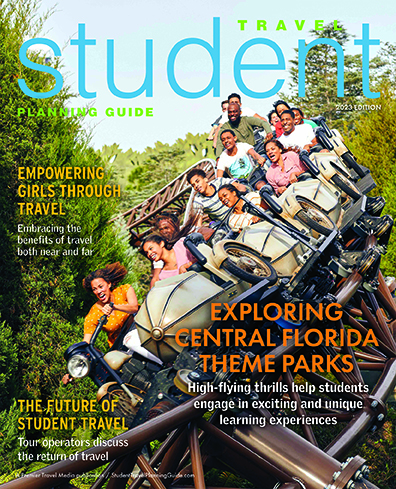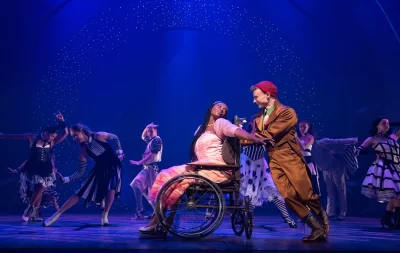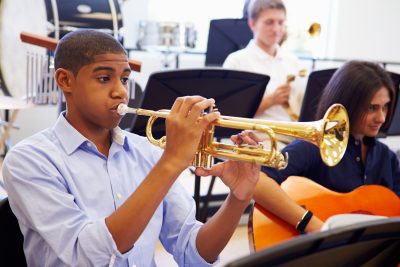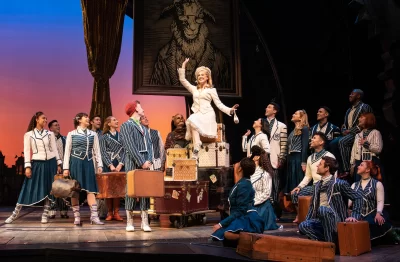Once the capital of our nation, Philadelphia now stands as a unique and vibrant city filled with opportunities to teach STEM. From it’s prestigious Ivy League university to its many museums dedicated to showcasing the region’s broad historical importance, Philadelphia is not shy about showing its long relationship with and love of STEM.
Museums & Zoos
Student groups visiting the American Helicopter Museum and Education Center have a chance to find out just why Philadelphia is considered to be the “Cradle of Rotary Wing Aviation.” The museum has over 20,000 artifacts from the history of aviation and dozens of exhibits and video presentations. Students will get a chance to learn about the heavy amount of math and engineering that goes into defying gravity itself through its many programs on topics like Helicopter Aerodynamics, airspeed, weight and balance. Visitors also get a chance to use a realistic flight simulator and get into and operate the controls of a real helicopter. The museum’s helpful docents are also available to answer any questions with their more than 100 years of combined aviation experience.
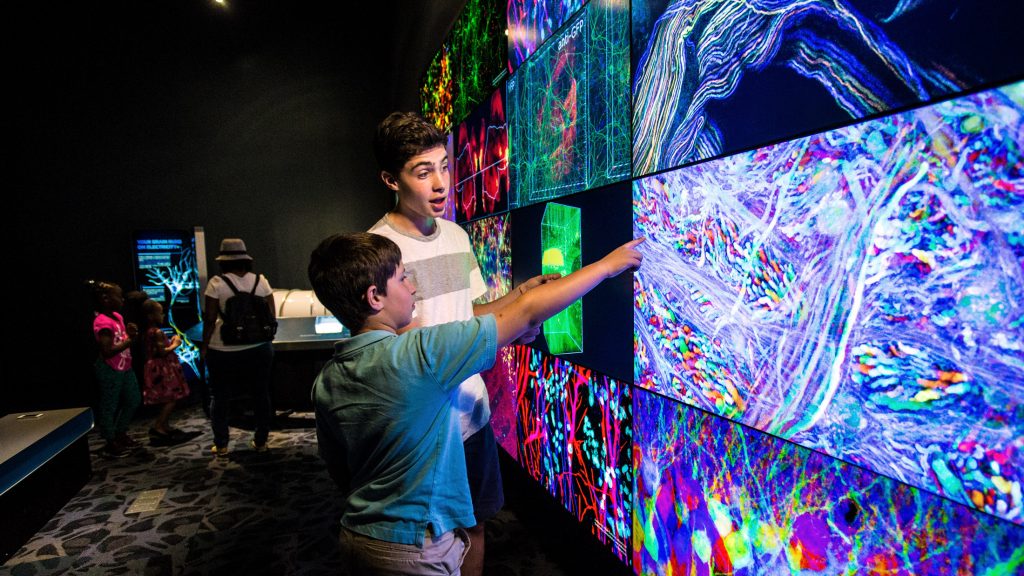
American Helicopter Museum and Education Center, Credit Visit Philly
Be amazed as tigers, meerkats and great apes walk right above your head in the Philadelphia Zoo’s unique Zoo360 experience. Future zoologists can observe the zoo’s more than 1,300 animals across 340 species, many of which are endangered or rare. Aside from the normal animal viewing areas, the Philadelphia Zoocontains a children’s petting zoo, paddleboat lake and rainforest-themed carousel. Younger guests are welcome at the zoo’s KidZooU, where they can learn about animal grooming and feeding with real animals like Chickens and Sheep. The Rare Animal Conservation Center is a great place to teach your students about the importance of conservation with its interactive and close-up views of the world’s endangered animals(including fruit bats, naked mole rats and blue-eyed lemurs).
Franklin Institute is where science and technology come to life before visitors very eyes with its hands-on, creative exhibits. The museum features a planetarium, observatory, IMAX theaterand even a number of escape rooms for visitors to enjoy and learn from. The Fels Planetarium allows kids to see view the night sky with cutting-edge presentations like Asteroid: Mission Extreme (view the possibilities that asteroids present to space travel). Explore technology-focused exhibits like the Tech Studio (which engages guests in engineering design processes of questioning, predicting, testing, failing and redesign), Augmented Reality and Virtual Reality. With so many opportunities to learn and discover, the Franklin Museum is the perfect location for any STEM field trip.
Universities & Academia
The Academy of National Science of Drexel University is the nation’s leading natural history museum dedicated to advancing research, education and public engagement in biodiversity. The museum features towering dinosaur fossils, tropical gardens filled with live butterflies and even live animals. The museum takes full advantage as a subsidiary of Drexel University, using its technology and media arts programs for its many exhibits. With its Discover Lessons, students can engage in interactive classrooms after they experience the museum proper and learn about the scientific process through making observations and designing experiments. Still not convinced? The museum offers one free visit a year to teachers, so take a trip and see for yourself if the Academy of National Science of Drexel University is right for your class.
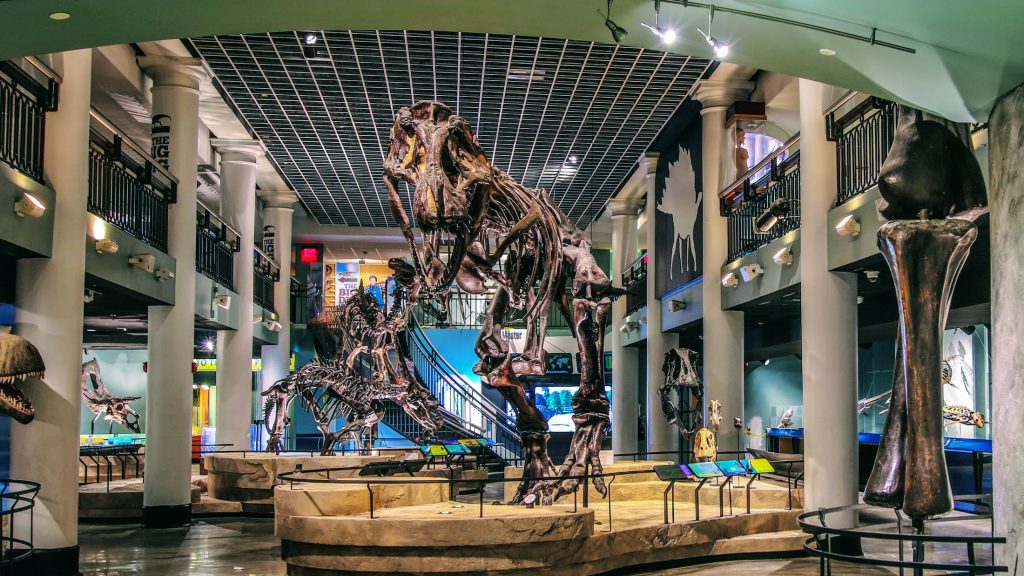
Academy of National Science of Drexel University, Credit Visit Philly
The field of medicine is anything but for the faint of heart, and the Mütter Museum at The College of Physicians of Philadelphia is more than ready to demonstrate this with its numerous informative, if slightly gruesome, exhibits. The weirder side of science is on full display with exhibit like the Hyrtl Skull Collection (a collection of 139 skulls owned by Viennese anatomist Josef Hyrtl used to help disprove the pseudoscience phrenology) and Albert Einstein’s brain on display. Grades 5-12 groups have a chance to enhance their trip with Mütter Lessons, with lessons like “Bone Detectives” teaching about forensic anthropology in criminal investigations ad “Brain: More than just Grey Matter” exploring different parts of the brain.
Industry & Technology
The Philadelphia area has the unique distinction of being the birthplace and current home of the United States Mint. There, visitors can take a tour of the active working mint to learn about the past and present technologies and methods of making the U.S currency. Field trip groups can marvel at the complex coin operations from 40 feet above and learn the interesting history of American coining through artifacts such as the first coin press. The world’s largest mint offers a look into each step along the minting process, and thus a look into the technology and engineering that keep the economy afloat.
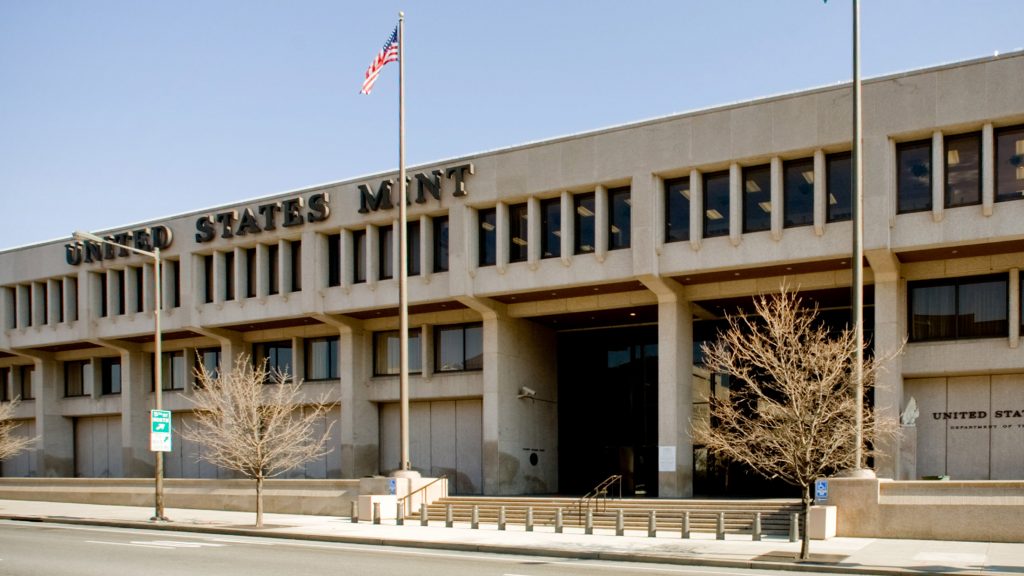
U.S. Mint, Credit Visit Philly
Nature/Outdoor Activities
One of the world’s great gardens with a combination of educational opportunities, horticulture and the arts, Longwood Gardens is a great option for outdoor STEM learning. Longwood Gardens offers educational classes for grades 9-12 such as Environmental Stewardship (which provides an overview of how Longwood uses sustainable practices like Solar Energy, recycling and composting to reduce environmental impact). The gardens have a variety of fountains and over a 1,000 acres of different flowers and plants to discover along with its many other opportunities. This world-renowned garden also has a year-long music schedule that includes local artists, Grammy-award winning musicians, dance ensembles and host of interpretive exhibits that are sure to entertain any group after a long day of learning.
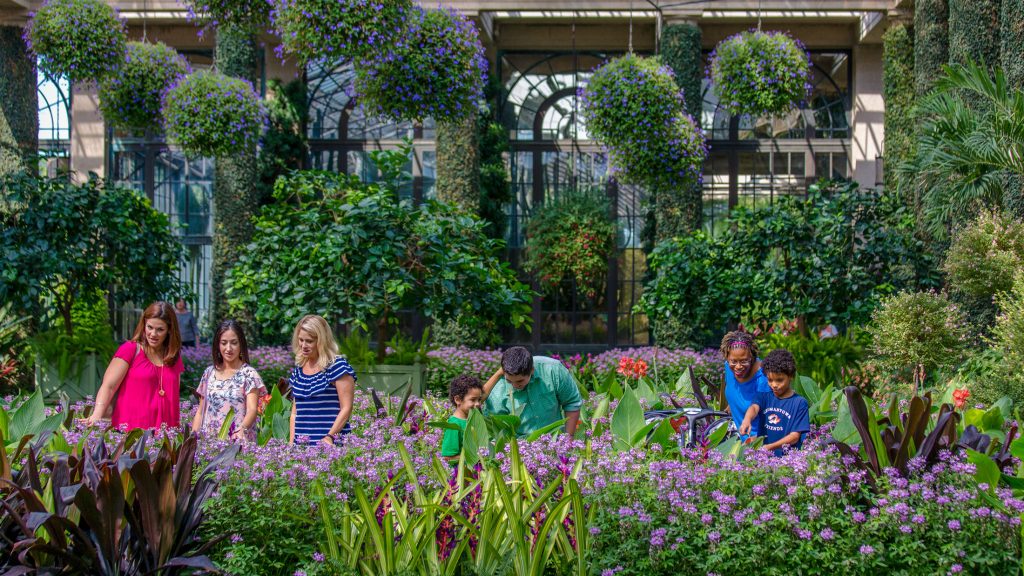
Longwood Gardens, Credit Visit Philly
If you’re looking for a hands-on outdoor experience that also teaches STEM-focused lessons, then Greener Partner’s Deaver Wellness Farm is right for you. A half-acre, working farm that provides healthy eating education for interested parties, Deaver Wellness Farm is great for all grades preK-12. The farm itself provides nearly 5,000 pounds of produce per year to patients at the Lankenau Medical Center. Students have access to flower, herb, and vegetable production gardens, a composting area, a greenhouse and pavilion. Classes like Food Justice (where students discuss food access, food miles, and food systems) and King Soil and Compost (where students explore the farm and discover the worlds of soils and compost) teach everything they’d need to know about food production in a modern world.


